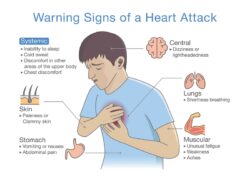Recently a Bozeman hunter was found dead in the Bridger Mountains. He had a health emergency at age 65. This is not an uncommon story. As we age, our healthy hunts become harder, shorter, and more at risk. Heart issues can happen in a hurry.
The stress of hunting, especially in Montana, exceeds any cardio stress tests. Not only is their stress from physical exertion, but the exercise is also happening at higher altitudes. The excitement of a giant moose, elk, bison, or buck can give anyone a heart attack.
All veteran, older hunters feel bulletproof, until we are not. Aging allows us the wisdom and experience to become better hunters. We can afford all the toys and have more time to hunt and trek into the wilderness. Sadly, every hunt is one less.
Everything about hunting is harder when we age. Climbing a tree stand, dragging or backpacking meat, traversing obstacles, hiking for miles, falling, keeping up with the younger bucks.
Here are some healthy tips to consider before heading afield.
Schedule your annual checkup prior to hunting season. Once hunter’s approach 50 and older, their blood pressure, sugar levels, and other symptoms become more of an issue. Know your health history and challenges before you impact yourself or others.
Exercise is going to keep you going! Flexing, weightlifting, jogging/walking, will keep your muscles moving. Arthritis is also a problem. Know your limits and respect them.
Weight control is heavily important. Muscle is heavier than fat. Fat is not hunter friendly. The more weight you carry, the more strain and stress on your aging body systems and structure.
Medicate as needed. Make sure that you stay on schedule with all your needed meds. Changing the dosages or routine will change your body. Carry some aspirins if you are at risk of a heart attack. If heart attack symptoms surface, take an aspirin, and chew it, immediately. If Diabetes is an issue, carry some carbohydrates to quickly help balance your sugars.
Pay attention to your body. No critter is worth dying over. If you feel symptoms, do not push harder. Take a break and evacuate. Let your hunting companions know your health and medicate issues. Make sure they understand what they need to do if you have an issue.
Heart attack symptoms. Chest pressure, nausea, and pain lasting more than a few minutes means you may be having a cardiac event. Your chest, shoulders, neck, arms, and jaw will let you know there is an issue. Other symptoms include dizziness, vomiting, sweats, and torso pressures are important to take seriously. Women often have heart attacks without chest pains. They tend to have more back pain. Your body is becoming starved for oxygen. Pushing harder only exasperates the problem. Chew your aspirin, rest, and plan on getting to a hospital, or calling emergency support.
Find a new normal. Hunting is a young bucks sport. Older, worn, and torn hunters can still stay in the game. Maybe become the Camp Cook or outfitter. Mentor other hunters and let them do the physical work. They will be hungry to learn, and you will still be able to participate in the camp. At most camps, everyone shares equally in the harvest.
If you plan for the worst, it may not become a problem. We all love to hunt but we also love to live! Like John Wayne said, “A man needs to know his limitations!”
Montana Grant